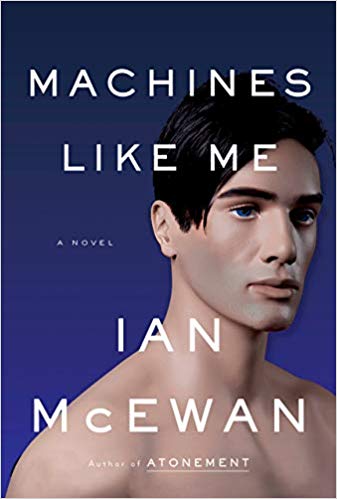We Can Imagine Robots That Think and Feel
But does that make them more likely?
A critical fact about artificially intelligent and sentient robots—if they could exist—University of Glasgow philosopher emeritus Hugh McLachlan notes is that, unlike life forms, they could be turned on and off. Or prevented from existing:
That brave new world would throw up many issues as we came to terms with our robot counterparts as part and parcel of everyday life. How should we behave towards them? What moral duties would we have? What moral rights would such non-human persons have? Would it be morally permissible to try to thwart their emergence? Or would we have a duty to promote and foster their existence?
Hugh McLachlan, “Ethics of AI: how should we treat rational, sentient robots – if they existed?” at The Conversation
McLachlan is riffing off a recent novel, Ian McEwan’s Machines Like Me, in which computer pioneer Alan Turing (1912–1954) lives into the 1980s and scores breakthroughs in artificial intelligence which enable “rational, sentient” robots.
The philosopher thinks that whether such a being can exist is an open question:
There’s no obvious logical reason why conscious awareness of the sort that human beings possess – the capacity to think and make decisions – could not appear in a human machine some day. Whether it is physically possible and, therefore likely to actually happen, is open to debate.
Hugh McLachlan, “Ethics of AI: how should we treat rational, sentient robots – if they existed?” at The Conversation
Others say that there are logical reasons for doubt, including the fact that thinking, as humans do it, is not computation. Computation, which is the basis of artificial intelligence, is only one aspect of thinking. And it was Turing himself who accepted Gödel’s view on that subject, however reluctantly.
In the novel, as a reviewer summarizes:
At the heart of Machines Like Me is a love triangle between a drifting would-be intellectual named Charlie, his young but mysterious neighbour and girlfriend Miranda and a synthetic human named Adam. In this alternate universe, much of the technology we have today exists as of 1982 thanks in part to Turing, who has also overseen advancements in artificial intelligence that far exceed what we have today. Adam is an intriguing creation. He is potentially lethal, at times insufferably moralistic but deeply in love with Miranda and prone to writing endless haiku poems in her honour. But he also has knowledge of a dark secret in her past of which Charlie is not initially aware.
Eric Volmers, “Ian McEwan talks new book Machines Like Me” at Postmedia News
McEwan’s robot Adam is sentient as well as intelligent. Assuming that’s possible, robotics experts in the real world have a ways to go:
Though Sophia has been known to say unkind things, like that it “will destroy humans,” it kept things polite on Friday during a presentation at a conference here. In fact, it was “a little nervous” and aware of its shortcomings — albeit in a weird, robot way.
“If robots like me are going to become superhuman super-intelligences, we’re going to need to get a whole lot smarter,” Sophia told the crowd…
“Good people of the Ethereum nation, thank you,” it said. “I look forward to coming back here next year to show off my massively upgraded brain. I loved you all.”
Sophia loved us all.
Becky Peterson, “I met Sophia, the world’s first robot citizen, and the way it said goodbye nearly broke my heart” at Business Insider
We can imagine closing a mind gap that cannot be closed for the same reasons as we can imagine a rational horse when it is not intellectually possible or a squared circle when it is not mathematically possible.
Imagination, as Shakespeare put it, simply works that way: It can envision worlds that are coherent and rational but not real:
The poet’s eye, in fine frenzy rolling,
Doth glance from heaven to earth, from earth to heaven;
And as imagination bodies forth
The forms of things unknown, the poet’s pen
Turns them to shapes and gives to airy nothing
A local habitation and a name.
Such tricks hath strong imagination,
That if it would but apprehend some joy,
It comprehends some bringer of that joy;
William Shakespeare, “Act V, Scene 1” at A Midsummer Night’s Dream
If Shakespeare is right, Sophia will certainly break some hearts.
Further reading: How do robots “care”?
Can machines be persons?
Does vivid imagination help “explain” consciousness?
And
The mind can’t be just a computer
